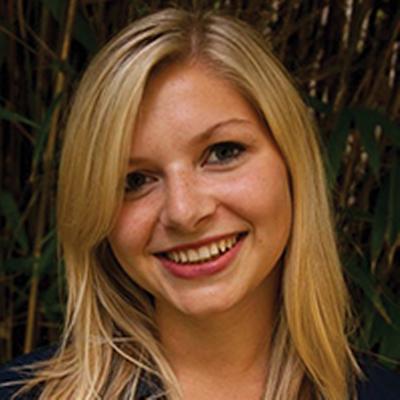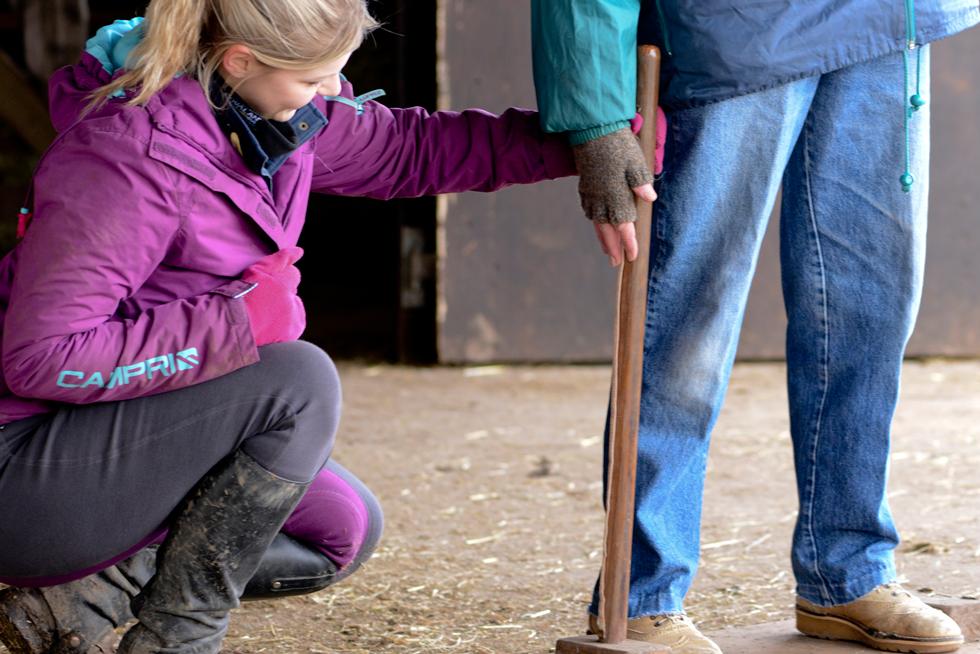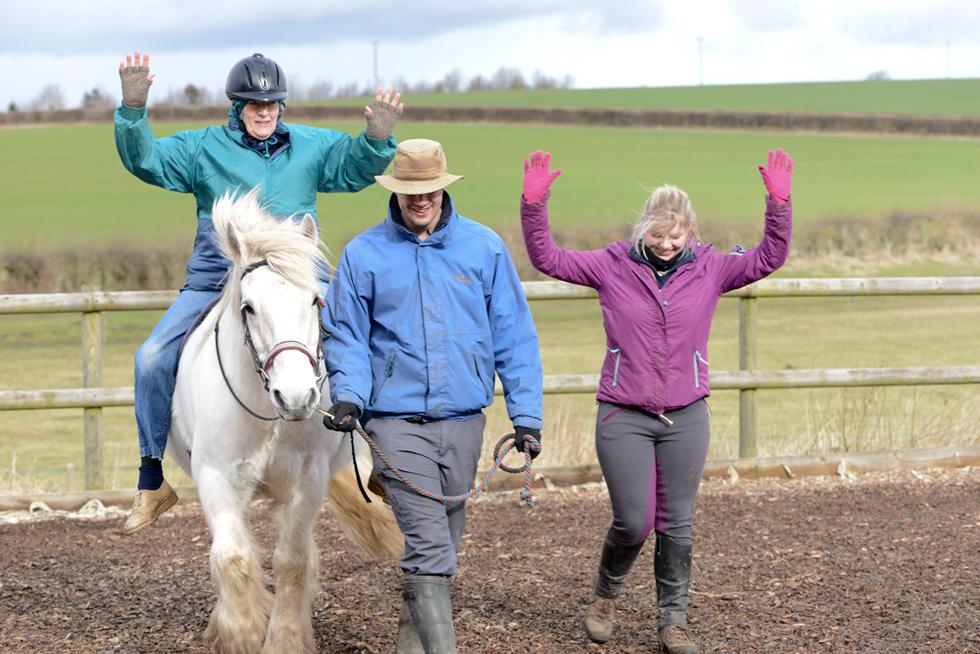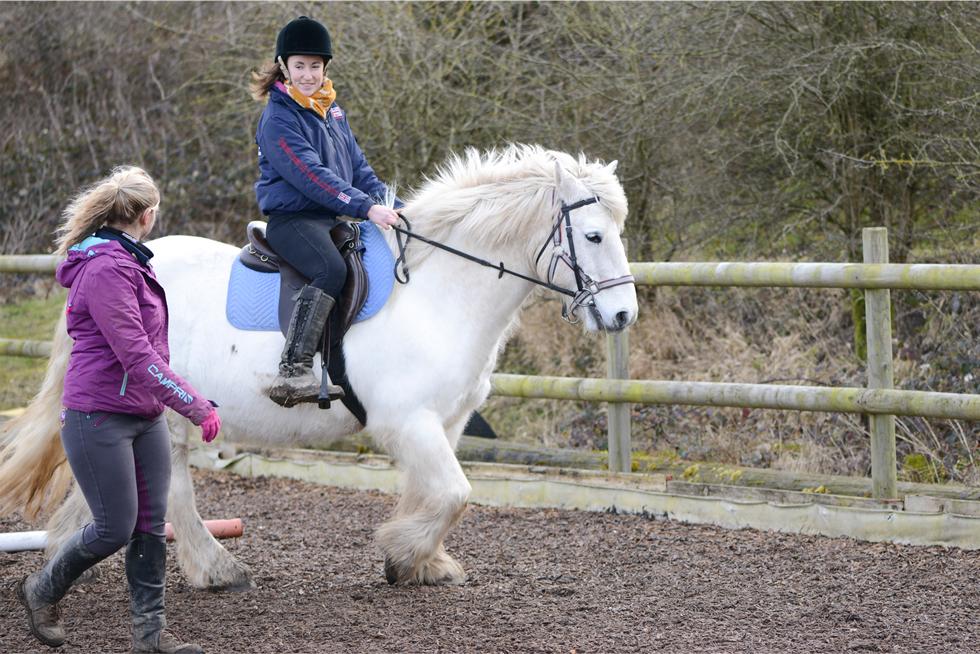Lauren Phillips BSc Occupational Therapy , 2015
Occupational Therapist with Southern NHS Foundation Trust

Hi, I'm Lauren Phillips and I studied Occupational Therapy at the University of Southampton.
The opportunities my course provided me with have been amazing: from the Swedish student exchange, emerging role placements, talking to school pupils and to representing the University in The Guardian; everything has been geared towards helping me become the best occupational therapist I can be.
What made you select the University of Southampton for your undergraduate study?
I decided to look around for universities and I discovered Southampton. It was a lot further from home than I had wanted but with so few universities in Wales, I didn’t have much of a choice. However, once I visited the University and the city, I fell in love with the campus and the city. It had a bit of everything – shopping and the ‘city life’ along with the New Forest just around the corner. The lecturers and students were so welcoming and really sold the course to me. The modules and teaching methods seemed fantastic; they encompassed problem-based learning with interactive involvement, including visits from occupational therapists, clients, patients and carers to share their experiences.
Southampton's status as a Russell Group University which was extremely important to me. It ticked all the boxes and more and made the move from my quiet country life to the beautiful city so much easier. It was the best decision I could have made and I settled in within no time.
What is Southampton like as a place to study?
The course enabled learning through a means of creative lectures including practical sessions, presentations and hands on learning in the anatomy lab. The lecturers were extremely supportive and always made time to discuss any queries or concerns.
What did you enjoy about the course?
I really enjoyed the variety that occupational therapy offers; no day and no client is ever the same. Lectures varied from mental to physical health, whether they be classroom based or in interactive sessions, for example learning how to splint. Most importantly, I loved my placements; I had such a wide variety of placements from palliative, to challenging behaviour environments, all of which I have thoroughly enjoyed.
Were there any modules or aspects of the course that you particularly enjoyed?
A major highlight would be my exchange with Lund University in Sweden. Students on my course had the opportunity to visit Sweden for a week and attend Lund University. We attended lectures and conducted research projects with Lund students. This was key in developing myself personally and professionally. It improved my confidence in myself and my skills as a therapist, and increased my awareness of the importance of occupational therapy globally.
I also had the opportunity to select two optional modules. This greatly added to my experience as it gave me the opportunity to specialise and develop further skills in areas I am interested in. I studied Sensory Processing and Mental Health Assessments; these improved my knowledge of both subjects and were crucial in developing my understanding of the overlap between mental and physical health.
How useful did you find your clinical placements?
I have also had the opportunity to engage in a range of fantastic placements. In my first year, I worked on a neurological rehabilitation ward with adults with brain injuries and strokes, assisting them to develop skills to enable them to perform tasks which were important to them, such as cooking and showering independently.
In my second year, I was on a palliative placement, helping individuals to achieve what they wanted within their final weeks. Although this was a very sensitive area, it was extremely rewarding. This was followed by a placement in an Intensive Support Team, which supported individuals with challenging behaviour and learning disabilities to overcome barriers which prevented them from engaging in tasks and working with family and carers to support them to achieve these tasks.
Finally, in my third year, I had the opportunity to apply for an emerging role placement. Emerging role placements consist occupational therapy students setting up an aspect of occupational therapy within a setting which does not offer this service. I applied for and was selected for a placement at an Equine Assisted Therapy and Outdoor Therapy Centre. I worked with a range of client groups, including those with mental health, physical health, learning disabilities, autism and neurological disabilities. We used the horse to assist in aligning the pelvis, reduce lower back pain and build up core strength in physical health. With individuals with autism we would use the horse and its environment to increase attention, reduce distractibility, increase awareness of emotions, and improve social motivation and self-care. It was a fantastic experience that improved myself personally and professionally.
Did you participate in any extra-curricular activities (such as clubs, societies) that provided skills that you have used since finishing your course?
Southampton has offered me a range of opportunities. From representing my course as Course Representative in second year, to becoming Academic President in third year. This has allowed me to build connections, develop skills in my leadership and communication and represent the students on my course’s rights and spread and communicate changes to the wider student body.
I also had the opportunity to take up sign language, which was extremely useful as I was able to use many of the signs in my learning disabilities placement.
What is your current profession?
I am employed as a Band 6 Occupational Therapist Practitioner in Southampton Intensive Support Team. I work with individuals with learning disabilities and challenging behaviour. Working as part of a multi-disciplinary team, we work to reduce the intensity and frequency of challenging behaviour and improve quality of life through functional assessment of behaviour and the development and implementation of a positive behaviour support plan.
What networking, employment and work experience opportunities have you undertaken and how have they enhanced your undergraduate experience?
I had fantastic opportunities whilst in Southampton. The careers fair gave me the opportunity to explore future employers, be they the NHS or private. I also had the opportunity to present at conferences, for example I presented the benefits of Occupational Therapy and Sensory Gardens within Equine Assisted Therapy at the Horses in Education and Therapy International Conferences. It has given me the opportunity to network, create connections and meet employers.
Throughout my course I had the opportunity to engage in volunteer work and gain employment through NHS professionals, which allowed me to work as an occupational therapist assistant, whilst studying. This greatly benefited my skills as I was able to engage in a range of different occupational therapy settings. Furthermore, following my Equine Assisted Therapy placement, I was offered a role of therapist at one of their branches, a role which I am extremely pleased to have gained.
How do you feel that your course has prepared you for your current employment?
The course has been fantastic at improving my professional development as I have had the opportunity to be involved in re-validating the Occupational Therapy course, attending training sessions, attending meetings with staff and students and improving the course. I had the opportunity to increase awareness of Occupational Therapy, which the University have encouraged and supported me in doing so. For example, I was interviewed by The Guardian on how to become an Occupational Therapist, spoken at schools and involved in a video advert for Health Sciences.
Furthermore, the University is very supportive in encouraging their students to apply for posts such as Occupational Therapist Assistants within part time organisations to improve our knowledge and experience. It is really encouraging and improves the way you think as a therapist and an individual. By supporting students this way, the University is helping each student achieve their ambition, as it assists in developing and producing skills which other students and other Universities may not have the opportunity to develop. Consequently, developing their employability.
I have also had the opportunity to conduct research with one of my lecturers, Julie Wintrup, which has resulted in my name being published as a co-author on a paper. Not only has this improved my research skills but many employers look for individuals who are keen to promote Occupational Therapy practice and keep up to date on research. Involving myself in this topic acts as evidence that this is something that I am committed to doing.
Do you have any plans to further your career progression?
The University has released my passion for working with individuals with sensory processing difficulties and also with equine assisted therapy. I would love to specialise within both of these areas and plan to return to Southampton to complete my Masters in Sensory Processing in the years to come. I would also like to complete a course in Hippotherapy, which uses the horse to manage sensory difficulties and physical health conditions. I would not have considered these options had Southampton University not exposed me to them. They have been critical in shaping myself, my career and my future.
What tips would you give to current students looking to start a career in your sector? What could they be doing now to make themselves more employable when they graduate?
Consider your A Levels – most healthcare courses request that the applicant has a science subject. Start researching universities and courses early to ensure that you can match your learning style to the right course and university and most importantly, have plenty of time to prepare and adapt your application to their requirements.
Most importantly, gain some experience! I had the opportunity to gain work experience in both physical and mental healthcare settings. Not only did this give me a much better understanding of the role of an occupational therapist but it also introduced me to a range of healthcare professions of which I was unaware. This provided me with skills and experience to include in my application and also make links with services for future reference. Consider getting a job alongside your studies. If you can get one in the healthcare sector, fantastic! If not in healthcare, any job will build your skills and experience.
Don’t forget to sell yourself to the University you are applying to. You are competing against hundreds of other applicants and you want to ensure that you sell yourself! Make your application course specific, e.g. mention occupational therapy if this is what you are interested in. Universities will know if you have applied to a range of healthcare roles when you use generic terminology like ‘this healthcare degree’. Finally – have confidence in yourself! Good luck!
What are you most proud of?
Following my graduation, I have had many opportunities to develop myself, both personally and professionally. I am extremely proud of everything that I have achieved in the past 20 months of employment. Not only have I quickly progressed through the banding system but I have had the opportunity to complete specialist training and publish a paper with other colleagues. I believe however my main achievement has been the successful work that I have with service users and the difference that my team are able to make to their quality of life.


